Students display innovative solutions to global challenges
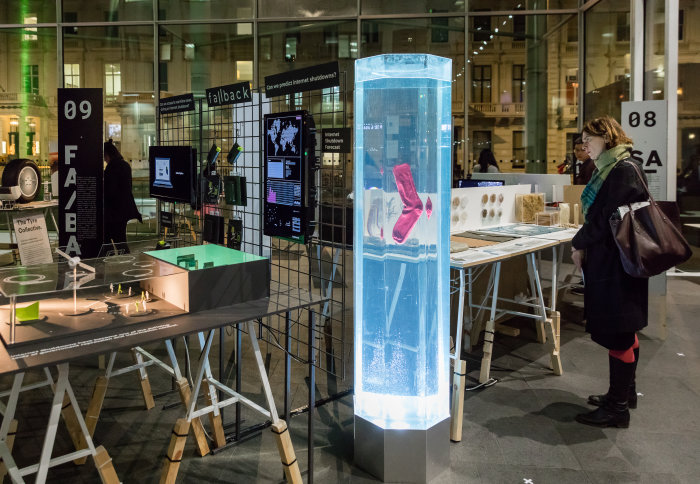
Students from programmes offered jointly by Imperial College London and the Royal College of Art exhibited latest projects at work in progress show.
Over a hundred students from the Innovation Design Engineering (IDE) and Global Innovation Design (GID) Masters programmes, offered jointly by Imperial College London and the Royal College of Art, exhibited their projects at the work in progress show.
The IDE programme is a leading creative product development course, which involves experimentation, design, engineering and enterprise activities. Their projects are addressing global challenges such as data privacy, climate change, healthcare and the circular economy, pushing limits of technology.
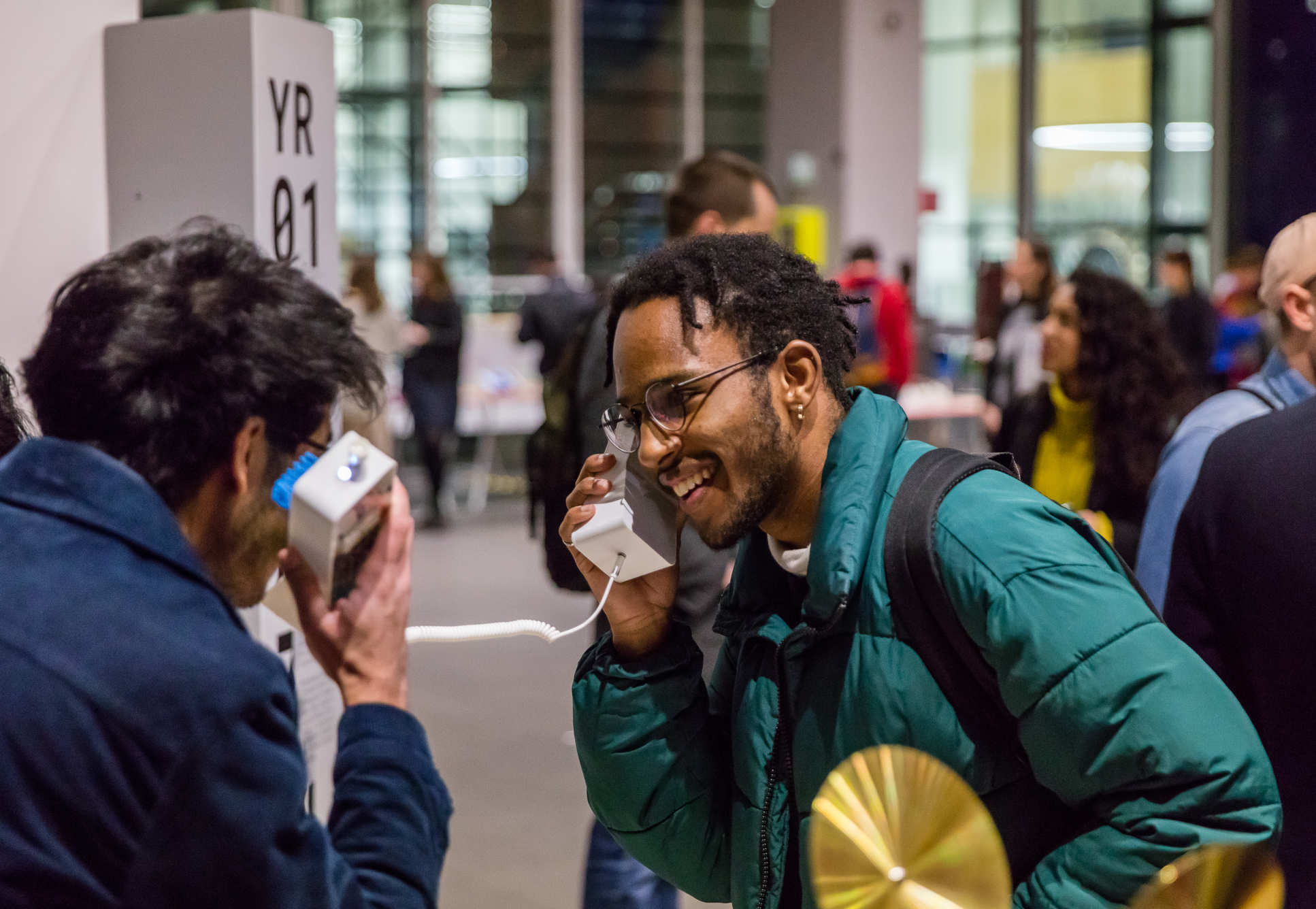
The GID programme is a unique, transnational initiative which brings together three major centres of design, culture, enterprise and industry: Europe, North America and Asia. Students on the programme start their experience in London, then travel to Asia, spending a term in Tokyo or Beijing and then spend another term in either New York or Singapore.
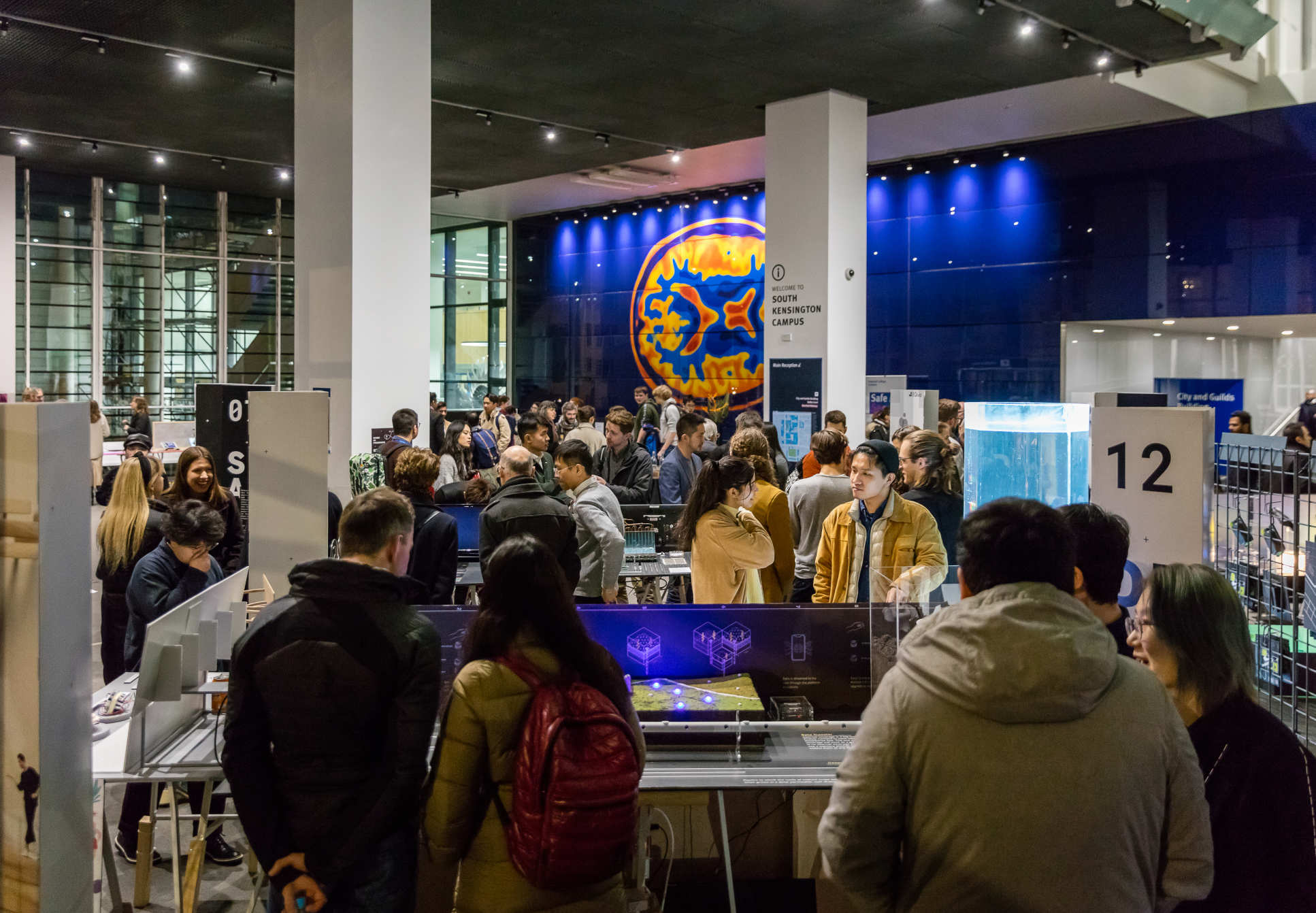
Amongst the projects exhibited at the work in progress show were:
Freshwater-free textiles
Salty Co are aiming to reduce global freshwater consumption by offering alternative, fresh-water free textiles.
One of the main consumers of freshwater, an increasingly depleting resource, is the textiles industry where freshwater is used in the production of both natural and synthetic fabrics. Salty Co are aiming to reduce global freshwater consumption by creating alternative, freshwater-free textiles using seawater.
They grow salt-tolerant plants by irrigating them with water pumped from the sea. Once they have grown, they harvest the plants and extract their fibres before manufacturing a variety of natural textile offerings.
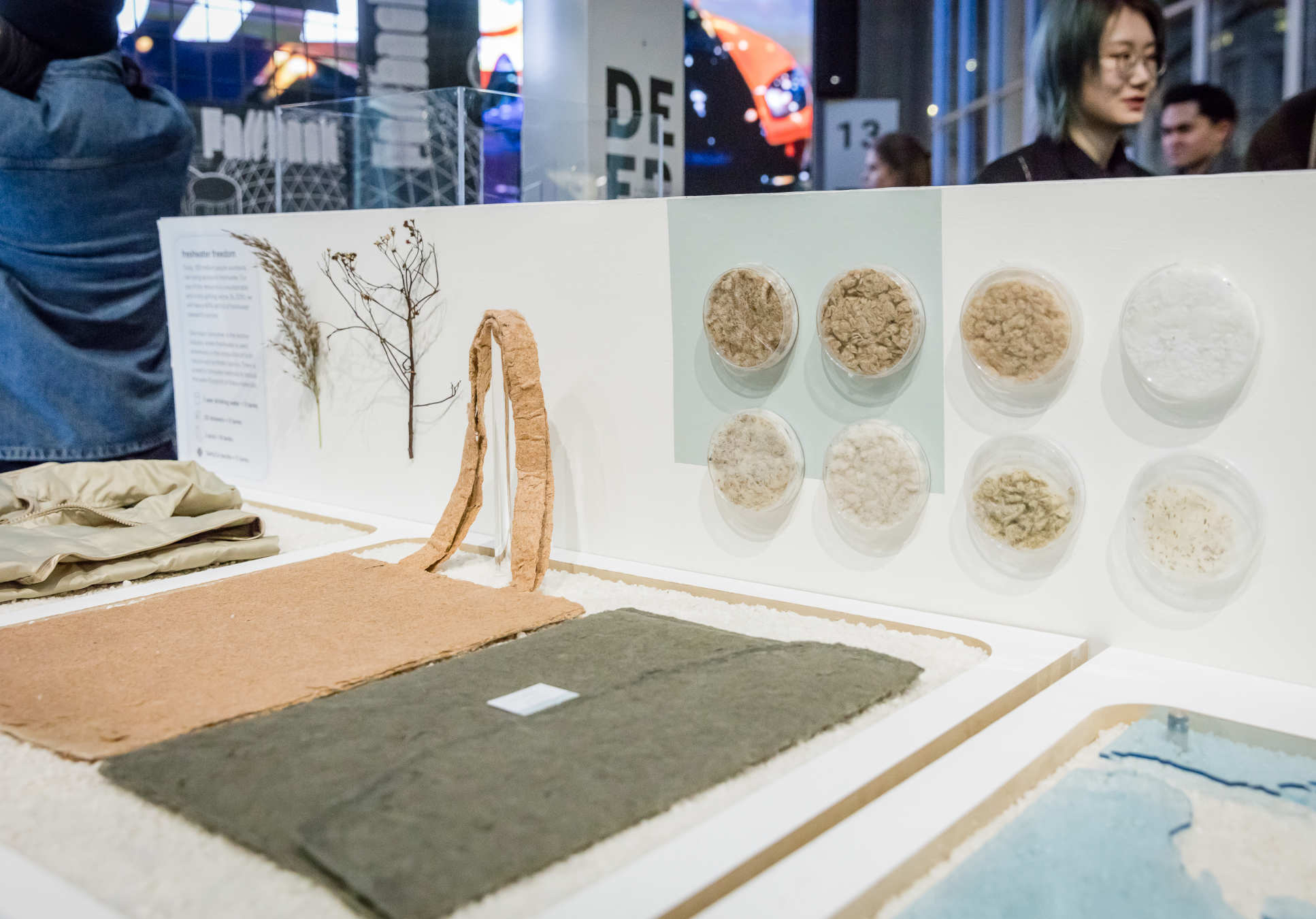
Mitigating emissions
The Tyre Collective are aiming to mitigate emissions of tyre particles by collecting them at the source.
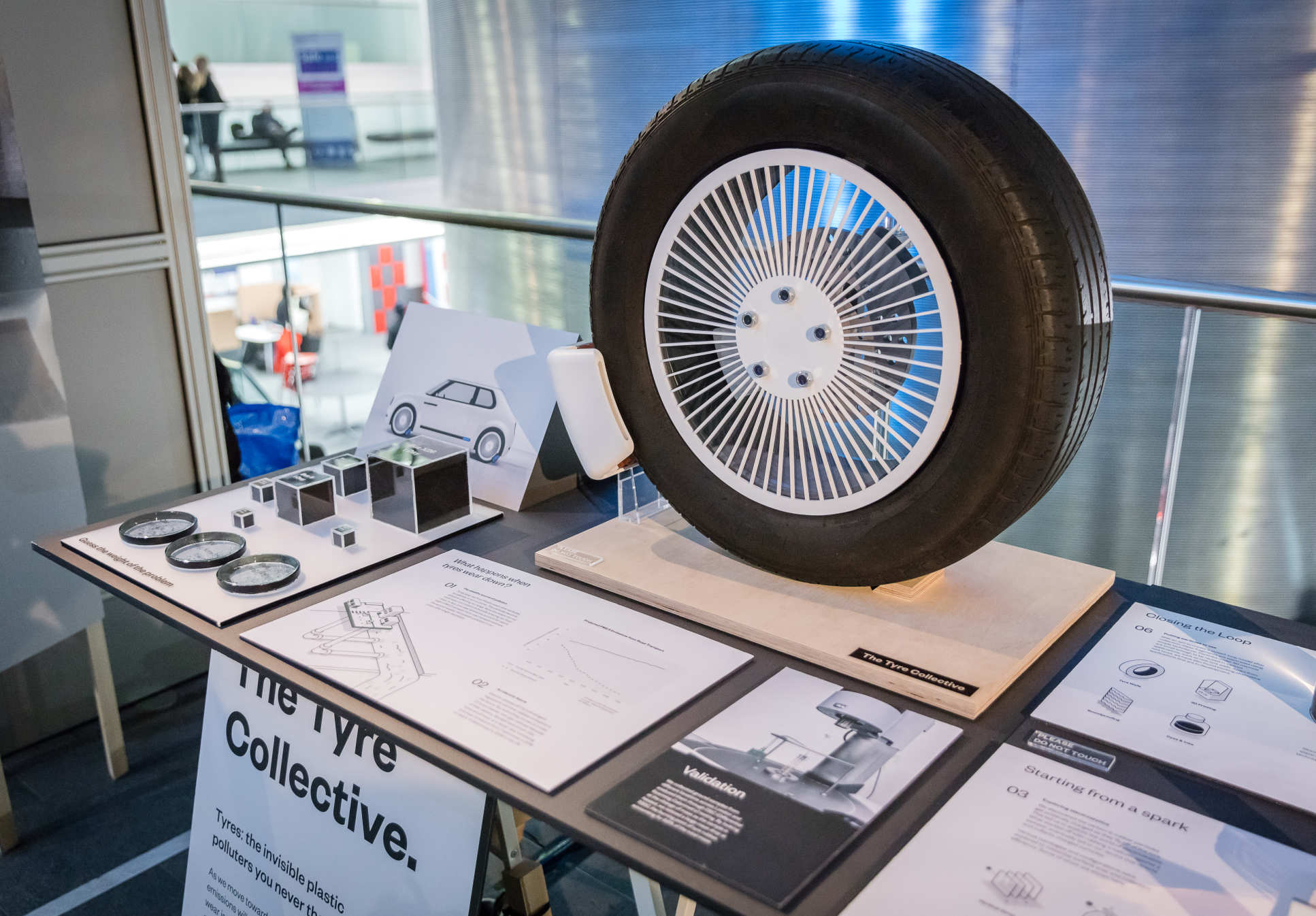
There are half a million tons of tyre particles produced in Europe annually from vehicles accelerating and braking. This can have adverse health effects, affect marine ecosystems and eventually end up on our dinner plates. Their project aims to mitigate emissions by collecting them at the source. Once collected, these fragments can be processed and then reused.
Bat-friendly farms
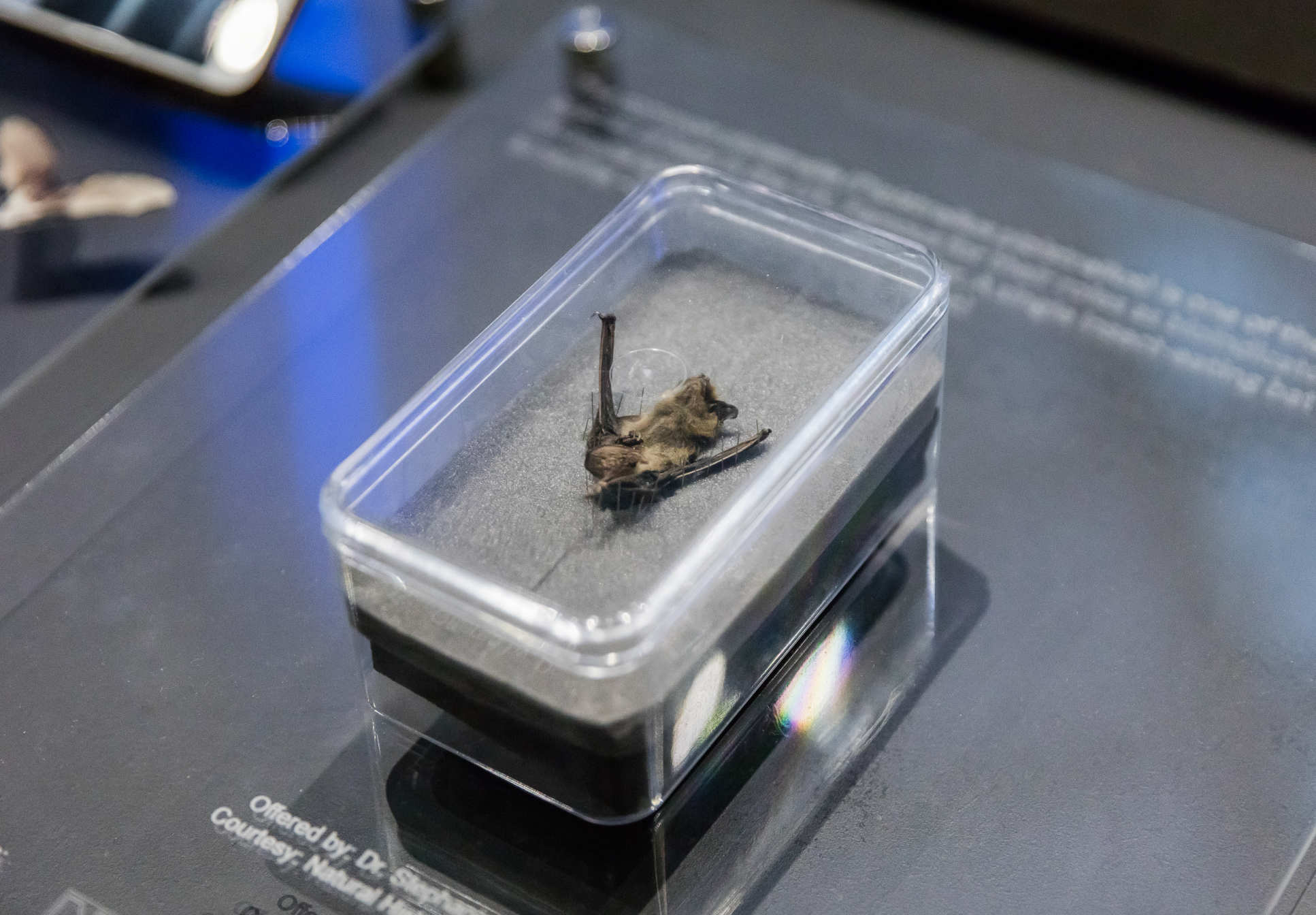
Currently it can be difficult for farmers to recognise how their efforts towards the environment could effectively impact their yield. Nocturn have designed bat detectors that use a combination of acoustic and infrared night-vision technology. As bats are a keystone species, their presence within an ecosystem signals healthy inter-species diversity.
The aim with this project is to champion farmers as environmental changers and show how they can diversify their landscapes.
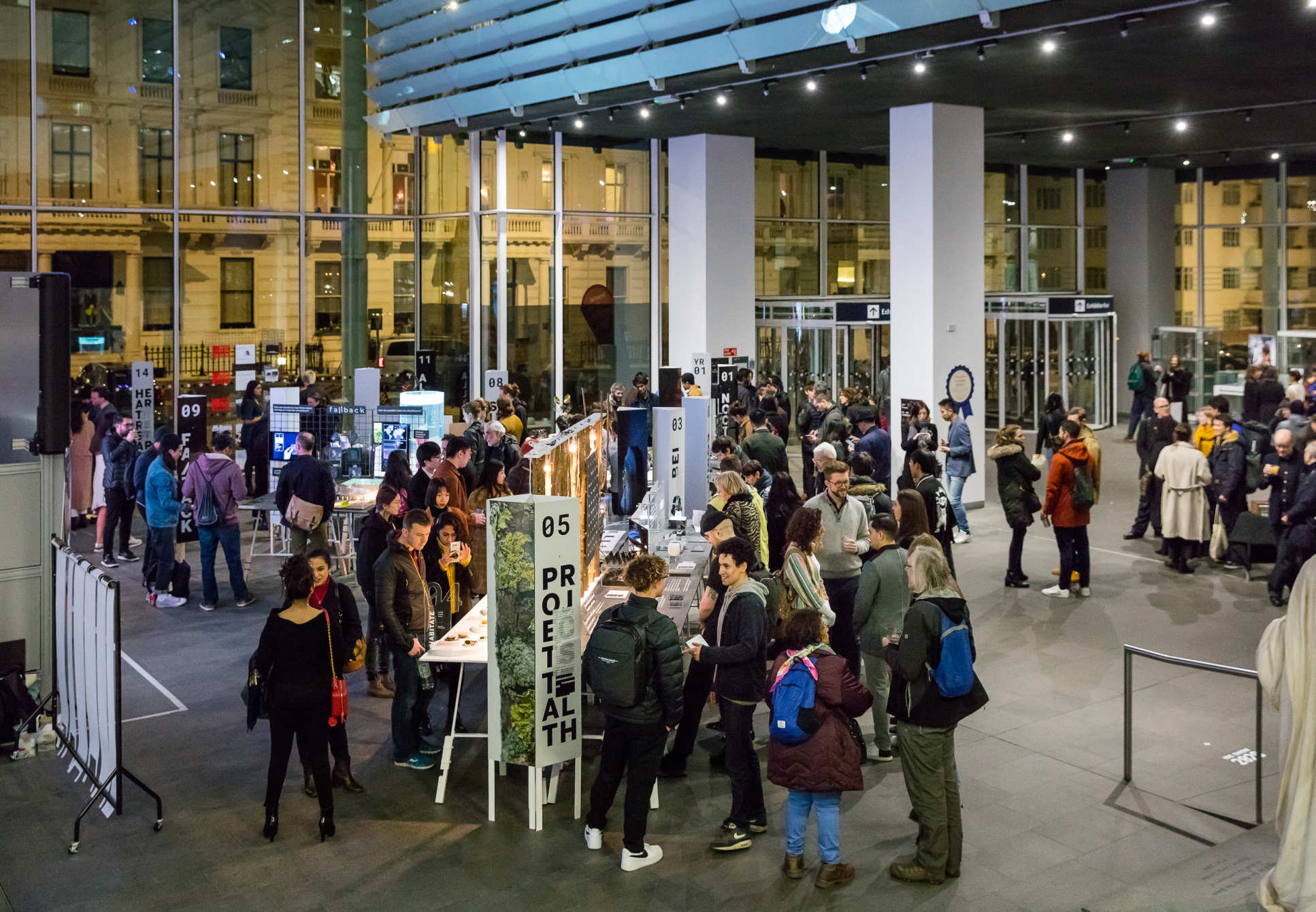
Article text (excluding photos or graphics) © Imperial College London.
Photos and graphics subject to third party copyright used with permission or © Imperial College London.
Reporter
Joanna Wilson
Communications Division